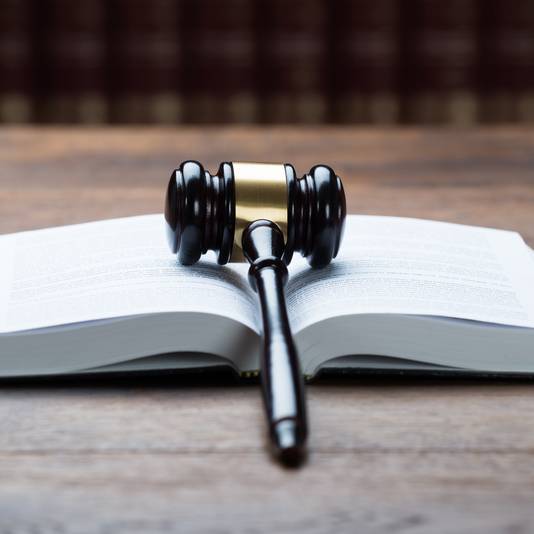Federal judges in New Jersey rejected President Donald Trump’s former defense attorney Alina Habba for the permanent U.S. attorney position, triggering a cascade of legal maneuvers that culminated in Trump personally firing her court-appointed replacement. The confrontation between the judiciary and executive branch has created uncertainty in New Jersey’s federal prosecution system and sparked debates over constitutional separation of powers.
The crisis began when Habba’s 120-day term as interim U.S. attorney expired on July 22. Trump had appointed Habba to the position on March 24, and she was sworn in on March 28. However, her nomination for the permanent role stalled in the Senate, where New Jersey’s Democratic senators Cory Booker and Andy Kim opposed her confirmation under the chamber’s blue slip policy.
On July 22, Chief Judge Renee Marie Bumb signed an order appointing Desiree Leigh Grace, Habba’s first assistant, to serve as U.S. attorney. Grace, a nine-year career prosecutor who joined the U.S. Attorney’s Office for the District of New Jersey in 2016, had previously served as acting chief of the Violent Crimes Unit and chief of the Criminal Division.
Attorney General Pam Bondi responded swiftly to the judges’ decision, announcing Grace’s removal within hours. Bondi characterized the federal judges as “politically minded” and declared that “This Department of Justice does not tolerate rogue judges — especially when they threaten the President’s core Article II powers.”
Court documents filed Tuesday revealed Trump’s direct involvement in the effort to remove Grace. At 12:02 a.m. on Saturday, when Grace was scheduled to assume office, Special Assistant to the President Saurabh Sharma emailed Grace arguing that the judges lacked the authority to appoint her. The same day, Jay Macklin, general counsel for the Executive Office for United States Attorneys, sent Grace a letter referencing her LinkedIn post about the appointment and noting that she had been removed from employment.
To circumvent the judicial appointment, Trump withdrew Habba’s Senate nomination on July 25. This maneuver allowed her to serve as acting U.S. attorney under different federal statutes, avoiding restrictions that would have limited her tenure to 210 days from when the vacancy occurred. Deputy Attorney General Todd Blanche, himself a former Trump defense attorney, indicated that Habba’s term as interim U.S. attorney actually ended Friday, not Tuesday as initially reported.
The Justice Department argued that Bondi had also designated Habba as a “special attorney,” providing her with prosecutorial authority separate from her role as U.S. attorney. This additional designation was apparently intended to insulate ongoing criminal cases from legal challenges questioning Habba’s authority.
Federal law grants district courts the power to appoint U.S. attorneys when the attorney general’s interim appointment expires after 120 days and the Senate has not confirmed the president’s nominee. This authority has been exercised before, including during Trump’s first term when New Jersey district courts appointed Craig Carpenito in 2018, and when Manhattan federal judges selected Geoffrey Berman the same year.
The controversy has already affected criminal prosecutions in New Jersey. Prosecutors requested delays in at least one case involving a triple homicide because Grace had been handling it. Defense attorney Thomas Mirigliano filed a motion to dismiss drug and gun charges against his client, arguing that the Trump administration’s maneuvering was irregular and unconstitutional.
During her tenure, Habba pursued politically charged prosecutions that drew criticism from Democratic lawmakers. She brought cases against Newark Mayor Ras Baraka and Representative LaMonica McIver, both Democrats, and challenged New Jersey State Police over sanctuary policies related to immigration enforcement. A federal grand jury indicted McIver on three charges related to a confrontation with law enforcement at an Immigration and Customs Enforcement detention center in Newark in May.
Senators Booker and Kim condemned the Justice Department’s actions in a joint statement, accusing the Trump administration of undermining judicial decisions and showing disregard for the rule of law. They described Grace’s firing as “another blatant attempt to intimidate anyone that doesn’t agree with them and undermine judicial independence.”
The White House expressed continued support for Habba, with spokesperson Harrison Fields stating that Trump maintains “full confidence” in her work as acting U.S. attorney. The administration indicated it would work toward her eventual Senate confirmation, though the timeline remains uncertain given senatorial opposition.
The standoff has created uncertainty about leadership in New Jersey’s federal prosecutor’s office, with defense attorneys raising constitutional questions about the validity of ongoing criminal cases. Federal Public Defender K. Anthony Thomas emphasized the complexity of the legal issues involved and suggested that different cases may require individual analysis depending on whether charges were brought by Habba or her predecessors.
The dispute represents a broader tension between the Trump administration and federal judges, with the Justice Department challenging judicial authority over prosecutorial appointments. The resolution of this conflict may set precedents for future disputes between the executive and judicial branches over control of federal law enforcement.

